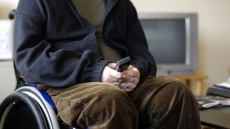Know how newborn babies learn about their bodies? By twitching in their sleep, says a new study.
Sleep twitches activate circuits throughout the developing brain, says the study, suggesting that twitches teach newborns about their limbs and what they can do with them.
Twitches are involuntary, sudden movements that can occur anytime, including sleep hours.
Every time we move while awake, there is a mechanism in our brain that allows us to understand that it is we who made the movement.
"But twitches seem to be different in that the brain is unaware that they are self-generated. And this difference between sleep and wake movements may be critical for how twitches, which are most frequent in early infancy, contribute to brain development," explained Alexandre Tiriac, graduate student in psychology at the University of Iowa.
For the study, Tiriac and fellow graduate students studied the brain activity of un-anesthetized rats between eight and 10 days of age.
They measured the brain activity while the animals were awake and moving and again while the rats were in rapid eye movement (REM) sleep and twitching.
"We noticed there was a lot of brain activity during sleep movements but not when these animals were awake and moving," Tiriac added.
The findings show twitches during REM sleep comprise a different class of movement.
"The discovery is further evidence that sleep twitches - whether in dogs, cats or humans - are connected to brain development, not dreams.
The paper appeared in the journal Current Biology.





